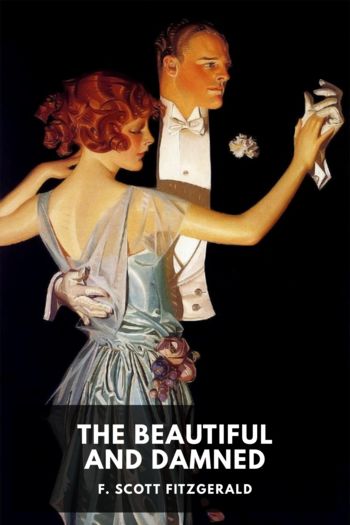Twelve Years a Slave by Solomon Northup (books to read to get smarter .txt) 📕

- Author: Solomon Northup
Book online «Twelve Years a Slave by Solomon Northup (books to read to get smarter .txt) 📕». Author Solomon Northup
We left Washington on the 20th of January, and proceeding by the way of Philadelphia, New York, and Albany, reached Sandy Hill in the night of the 21st. My heart overflowed with happiness as I looked around upon old familiar scenes, and found myself in the midst of friends of other days. The following morning I started, in company with several acquaintances, for Glens Falls, the residence of Anne and our children.
As I entered their comfortable cottage, Margaret was the first that met me. She did not recognize me. When I left her, she was but seven years old, a little prattling girl, playing with her toys. Now she was grown to womanhood—was married, with a bright-eyed boy standing by her side. Not forgetful of his enslaved, unfortunate grandfather, she had named the child Solomon Northup Staunton. When told who I was, she was overcome with emotion, and unable to speak. Presently Elizabeth entered the room, and Anne came running from the hotel, having been informed of my arrival. They embraced me, and with tears flowing down their cheeks, hung upon my neck. But I draw a veil over a scene which can better be imagined than described.
When the violence of our emotions had subsided to a sacred joy—when the household gathered round the fire, that sent out its warm and crackling comfort through the room, we conversed of the thousand events that had occurred—the hopes and fears, the joys and sorrows, the trials and troubles we had each experienced during the long separation. Alonzo was absent in the western part of the state. The boy had written to his mother a short time previous, of the prospect of his obtaining sufficient money to purchase my freedom. From his earliest years, that had been the chief object of his thoughts and his ambition. They knew I was in bondage. The letter written on board the brig, and Clem Ray himself, had given them that information. But where I was, until the arrival of Bass’ letter, was a matter of conjecture. Elizabeth and Margaret once returned from school—so Anne informed me—weeping bitterly. On inquiring the cause of the children’s sorrow, it was found that, while studying geography, their attention had been attracted to the picture of slaves working in the cotton-field, and an overseer following them with his whip. It reminded them of the sufferings their father might be, and, as it happened, actually was, enduring in the South. Numerous incidents, such as these, were related—incidents showing they still held me in constant remembrance, but not, perhaps, of sufficient interest to the reader, to be recounted.
My narrative is at an end. I have no comments to make upon the subject of slavery. Those who read this book may form their own opinions of the “peculiar institution.” What it may be in other states, I do not profess to know; what it is in the region of Red River, is truly and faithfully delineated in these pages. This is no fiction, no exaggeration. If I have failed in anything, it has been in presenting to the reader too prominently the bright side of the picture. I doubt not hundreds have been as unfortunate as myself; that hundreds of free citizens have been kidnapped and sold into slavery, and are at this moment wearing out their lives on plantations in Texas and Louisiana. But I forbear. Chastened and subdued in spirit by the sufferings I have borne, and thankful to that good Being through whose mercy I have been restored to happiness and liberty, I hope henceforward to lead an upright though lowly life, and rest at last in the church yard where my father sleeps.
Roaring River
A Refrain of the Red River Plantation
“Harper’s creek and roarin’ ribber,
Thar, my dear, we’ll live forebber;
Den we’ll go to de Ingin nation,
All I want in dis creation,
Is pretty little wife and big plantation.
Chorus:
Up dat oak and down dat ribber,
Two overseers and one little nigger.”
Chap. 375.
An act more effectually to protect the free citizens of this State from being kidnapped, or reduced to slavery.
[Passed May 14, 1840.]
The People of the State of New York, represented in Senate and Assembly, do enact as follows:
§ 1. Whenever the Governor of this State shall receive information satisfactory to him that any free citizen





Comments (0)